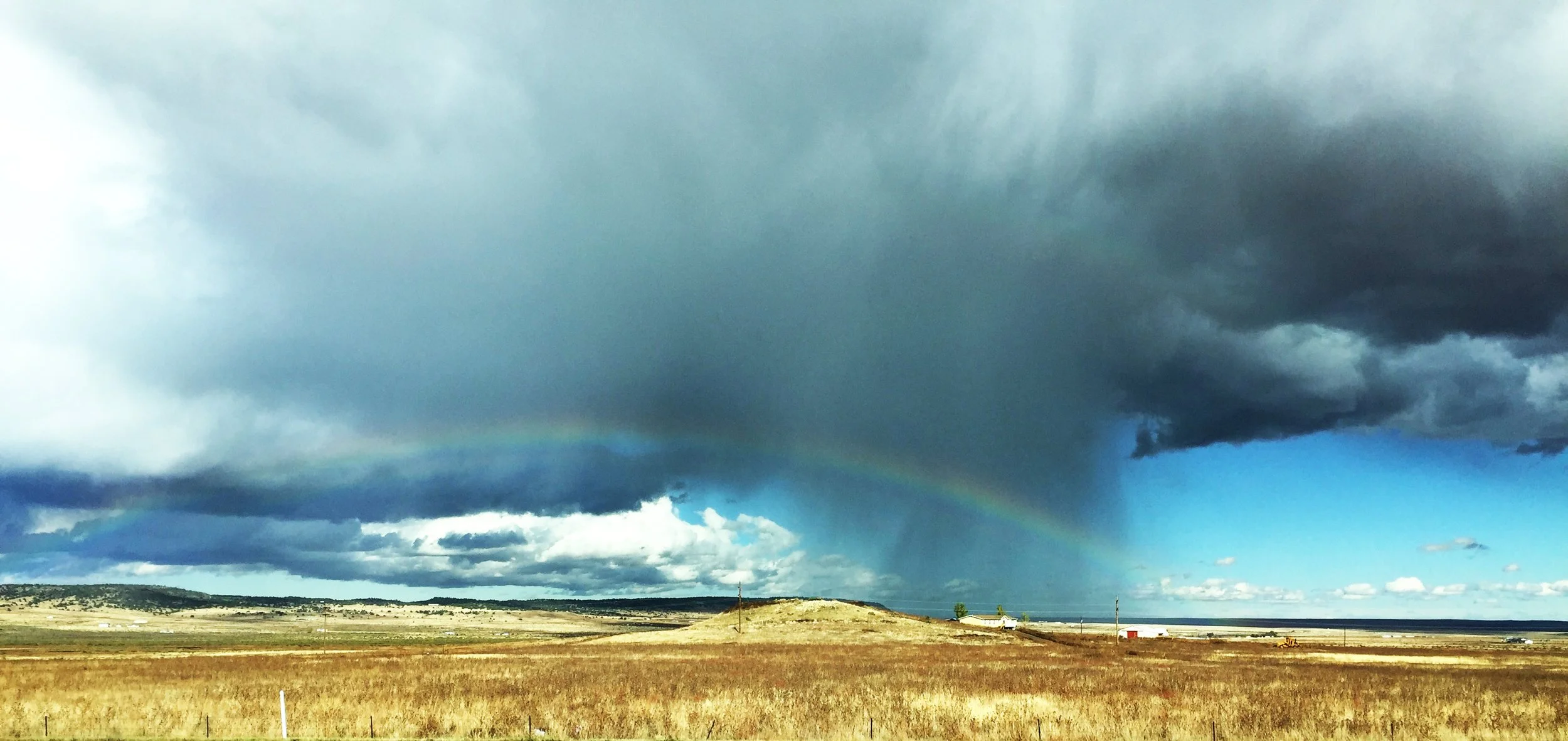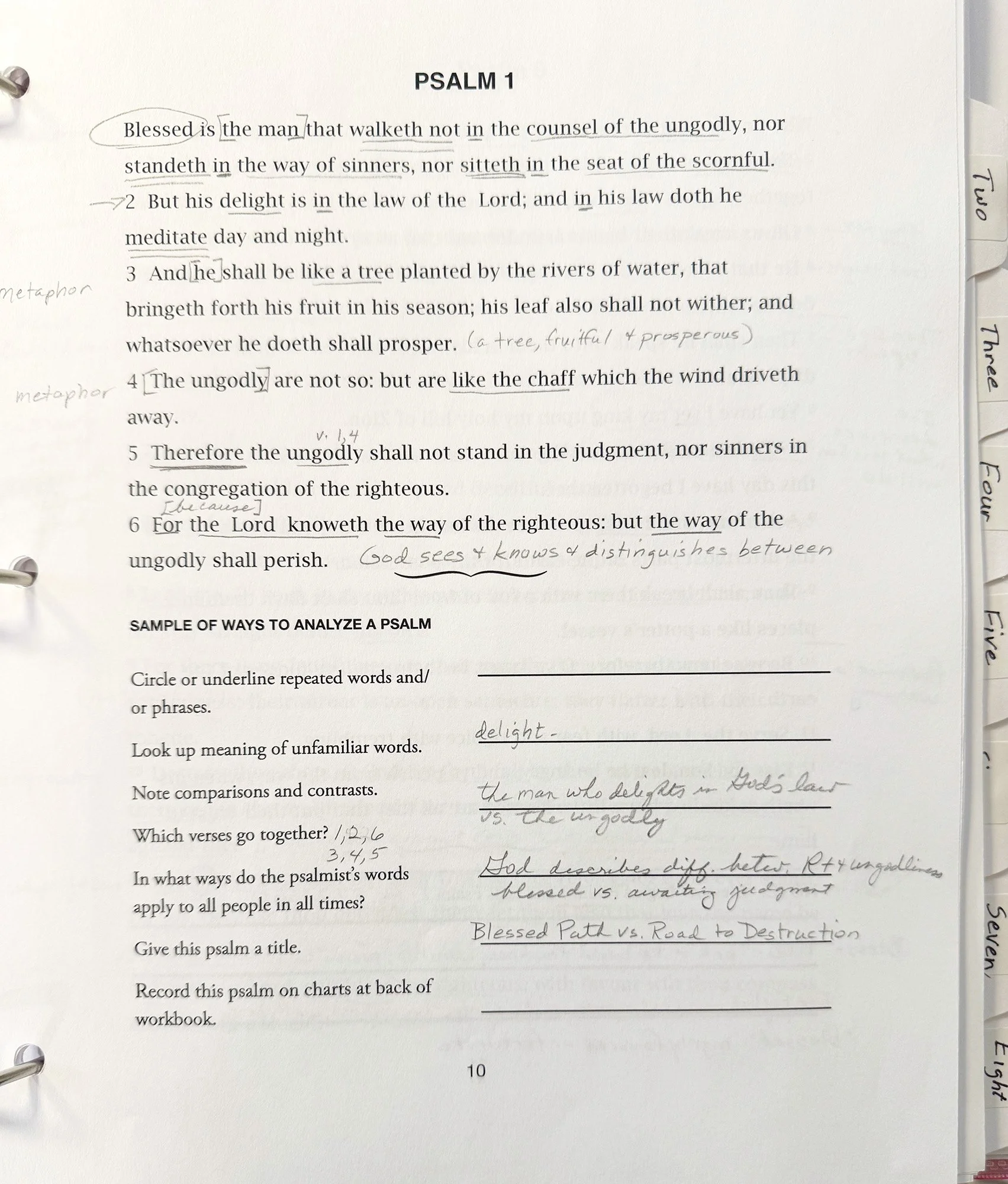Psalms to the Rescue Now
My brain is tired but my heart is full after leading the study of 25 psalms. Rather than stretch to think of something to write to you faithful readers of Footnotes2Stories, I thought I would share from the workbook I wrote. This was “a beta study” for the women who participated for nine weeks.
Here’s a sample from the content (not the format) and without the questions and my personal commentary.
“Psalm 1 & Psalm 2 form a funnel for the book of Psalms.”
LESSON ONE: PSALMS 1, 2, & 5
Prelude to a Biblical Worldview
Psalm 1 opens the door to the rest of the psalms. The psalmist magnifies the importance of “the law”––God’s law that encompasses the entire Bible. The psalmist contrasts righteousness and wickedness, showing the importance of choosing to meditate on God’s Word. Spiritual growth and fruitfulness result from righteousness in God’s sight. Emptiness and destruction await the wicked.
Psalm 2 opens windows to view the entire world––a world that as far as you and I can see ignores God and dismisses His Word. The culture opposes God. The culture promotes anti-God philosophy. The culture makes promises it cannot keep.
Psalm 5 shows the psalmist’s struggle to make sense of what the Bible reveals is true of God’s character while finding himself living in a world of contradictions, defiance, and unbelief. While observing how the psalmist sees the wicked live without God, he tells God, I don’t want to live like that.
Choose a better path. The spiritual battle between righteousness and wickedness continues to this day. The battles take place in the minds and hearts of Christians who live in an ever-changing world, finding themselves challenged to trust a never-changing God.
The battle is spiritual.
[Page where I summarized each psalm’s content and titled each lesson.]
Description of format:
Using the printed pages of each psalm in the workbook made reading more accessible for that week’s study.
Marking repeated words and phrases, noting contrasts and comparisons, analyzing the psalm for meaning helps those who study the Bible think how the book of Psalms continues to apply to all people in all times.
Psalms lead us beside still waters to think with God about whatever ails us.
Which psalms will soothe my soul?
What words do the Psalms offer to bring relief?
Can I experience lasting freedom from what makes my soul sick?
Do I identify with the circumstances the psalmists themselves experienced?
How will Psalms help me grow in grace and knowledge of the Lord Jesus, to whom the psalms will ultimately lead me?
Copy of my own observations about Psalm 1, KJV. Psalm 1 begins with the word, Blessed/hesed, which occurs 51 times in the book of Psalms.
I wrote the lessons before these were given out then placed in each person’s notebook. Then I worked on the lesson myself the same week the other women did. A student of my own teaching, the teacher must be taught!
Hymns: Timeless and Timely
At the end of each lesson, I printed the words to a hymn that reinforced the teachings in the particular psalms studied that week.
This Is My Father’s World
Maltbie D. Babcock, 1901
This is my Father’s world,
And to my listening ears
All nature sings, and round me rings
The music of the spheres.
This is my Father’s world:
I rest me in the thought
Of rocks and trees, of skies and seas;
His hand the wonders wrought.
This is my Father’s world,
The birds their carols raise,
The morning light, the lily white,
Declare their maker’s praise.
This is my Father’s world,
He shines in all that’s fair;
In the rustling grass I hear him pass;
He speaks to me everywhere.
This is my Father’s world.
O let me ne’er forget
That though the wrong seems oft so strong,
God is the ruler yet.
This is my Father’s world:
why should my heart be sad?
The Lord is King; let the heavens ring!
God reigns; let the earth be glad!
This hymn particularly corresponds to Psalm 2. “Why do the heathen rage and the people imagine a vain thing?”
The psalmist tells us that the LORD laughs at those who conspire against Him. “The Lord holds them in derision.”
As the hymn writer understood, “… though the wrong seems oft so strong, God is the ruler yet.”
Closing Comments
That first week’s study took place right after the assassination of Charlie Kirk.
Charlie Kirk’s death exposed the hatred and evil present and actively at work in this world. Appalling and graphic evidence of when the wrong seems so strong.
Can God be trusted? Can I trust God’s sovereignty? Does God’s goodness and power extend throughout all history and reach you and me today?
The psalmists declare Yes!!! Despite the recurring question, “How long, O LORD?” God is the Ruler yet.
The entire book of Psalms is filled with praise and thanksgiving to God.
While walking my dog Kona on 9/11––the day after Charlie Kirk was murdered––seeing all the flags displayed, I thought about Abraham who stood before the LORD, “Will you indeed sweep away the righteous with the wicked?”
I thought about Abraham asking God to spare Sodom and Gomorrah. Abraham began by asking God if there were only 50 righteous people in the whole city . . . then 45, 40, 30, 20, down to only 10, would God not destroy those wicked cities?
Six times Abraham asked “for the sake of the righteous living among the wicked.”
Timing prompted my own prayer.
“Will not the judge of all the earth do right?”
On the street where I live
P.S. If you would like to see more posts about the Psalms Bible study, please leave a comment.





